RELATED: Software For Organisation Charts | Software For Instant Messaging | Windows System For Mind Mapping
Are you or your company having trouble staying on top of all your projects? Poor project performance can lead to wasted time and money. Project portfolio management software can help you piece together all your projects to minimize risk, support your company’s long and short-term strategic goals, and stay ahead of your competition.
Don’t miss out on effective tools to help you manage projects and resources, as well as scale your business. To help you choose the best solution for your business, we’ve compiled a list of the top 10 best project portfolio management software available on the market right now.
Top 10 Best Project Portfolio Management Software
- Hive – Best set of collaboration tools
- Celoxis – Best resource management tools
- Microsoft Project – Best for medium to large companies
- Kissflow Project – Best for companies with heavy paperwork
- Runn – Best for growing software teams
- Portfoleon – Best for growing companies
- Changepoint – Best for analytics
- Oracle Primavera – Best for engineering and construction industries
- Workfront – Best for service teams
- LiquidPlanner – Best for ease of use
1. Hive – Best set of collaboration tools
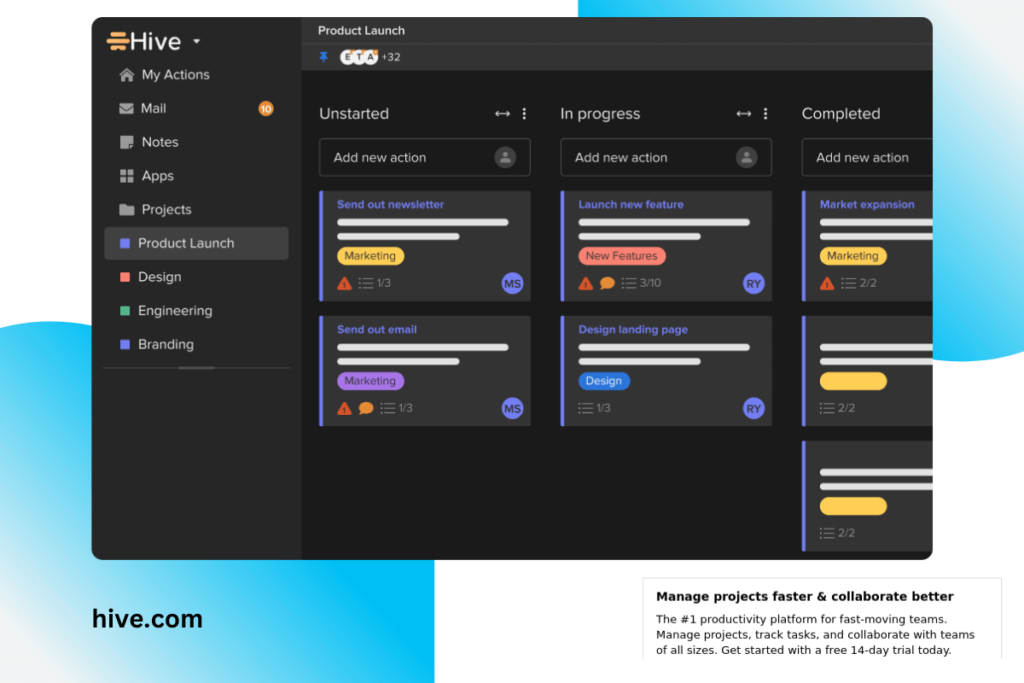
Pricing: Hive starts at $12/user/month billed annually. Add-ons range from $4 to $6. For enterprise pricing, please visit their website.
Hive is a cloud-based project portfolio management software used by various companies, including WeWork, IBM, and Starbucks. Hive assembles features like custom workflows, templates, automated task management, and analytics under one roof. Thousands of integrations are accessible to Hive users. This solution incorporates everything you might want from a project portfolio management software under one roof.
| Pros | Cons |
| High customizability and versatility | User interface might be difficult to navigate at first |
| Robust customer support | Lacks search function in each project |
| Reasonably priced | Permanent file deletion |
| Numerous integrations | – |
| Easy to use task cards | – |
| Great range of excellent features | – |
| Very flexible software | – |
2. Celoxis – Best resource management tools
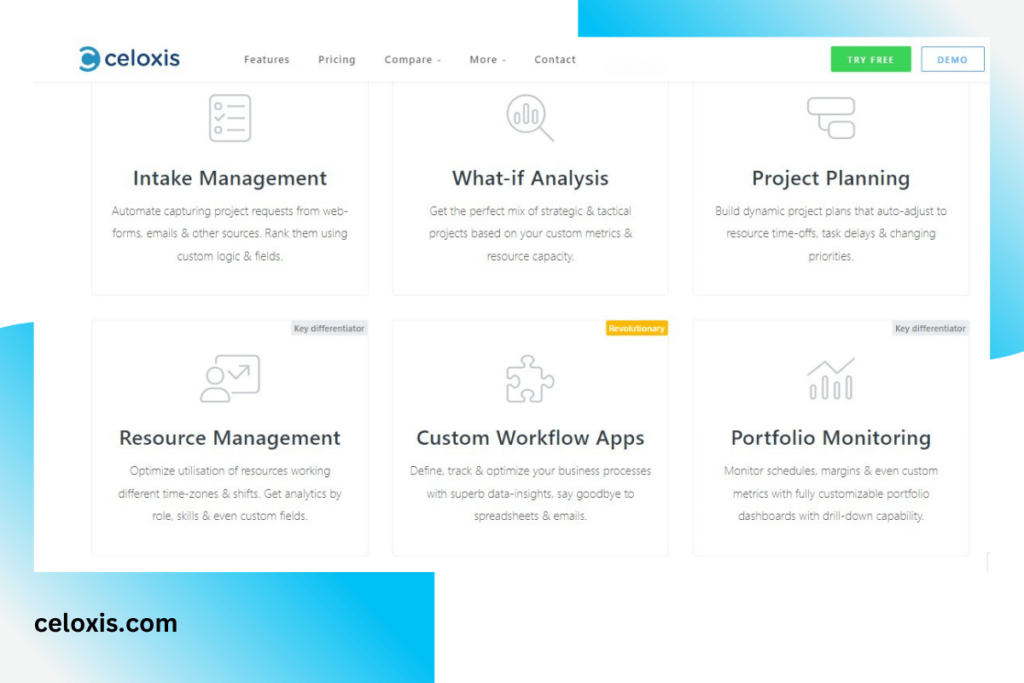
Pricing: Celoxis offers a 30-day free trial. The cloud-based version is $22.50/user/month billed annually, and the on-premise version is $450/year billed once.
Companies like Deloitte, HBO, and Adobe, among many others, use this all-in-one solution. Celoxis is known for its wide range of useful tools for project management. It includes features like automatic cost and revenue estimates, budget management, budgeting and forecasting, data reporting, collaboration tools, and customizable templates. Celoxis also comes with hundreds of integrations with platforms like Google Apps, Slack, and QuickBooks.
| Pros | Cons |
| Vast customization possibilities | Lacks proofing tools |
| Multiple and customizable dashboards | Lacks billing/invoicing features |
| Abundant reports and a large range of useful tools | – |
| Great value | – |
| Short setup time | – |
| Easy to use | – |
| Excellent budgeting, time tracking, and resource management tools | – |
3. Microsoft Project – Best for medium to large companies
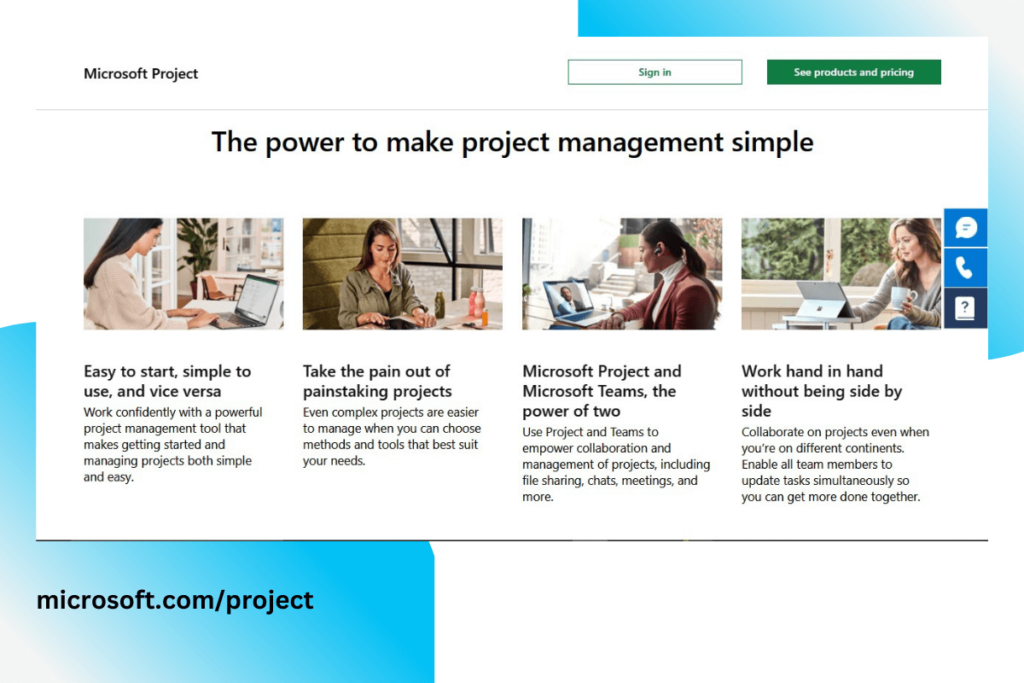
Pricing: Microsoft Project offers both cloud-based and on-premise solutions. Their cloud-based solutions range from $10/user/month to $55/user/month and their on-premise solutions start at $679.99/year to $1,129.99/year.
Microsoft Project is typically better for medium to large companies who employ experienced project managers. There’s a pretty steep learning curve because this solution is packed with powerful tools that can be complicated to understand at first. However, Microsoft Project has some great features like an interactive project timeline view, great collaboration tools, custom reports, and support for various project management methods.
| Pros | Cons |
| Centralized home screen | Steep learning curve/requires training |
| Multiple project views | Some file compatibility issues |
| Supports different project management methods | Lacks some key integrations |
| Great custom reports | – |
| Time tracking | – |
| Flexible solution | – |
| Great customer support | – |
4. Kissflow Project – Best for companies with heavy paperwork
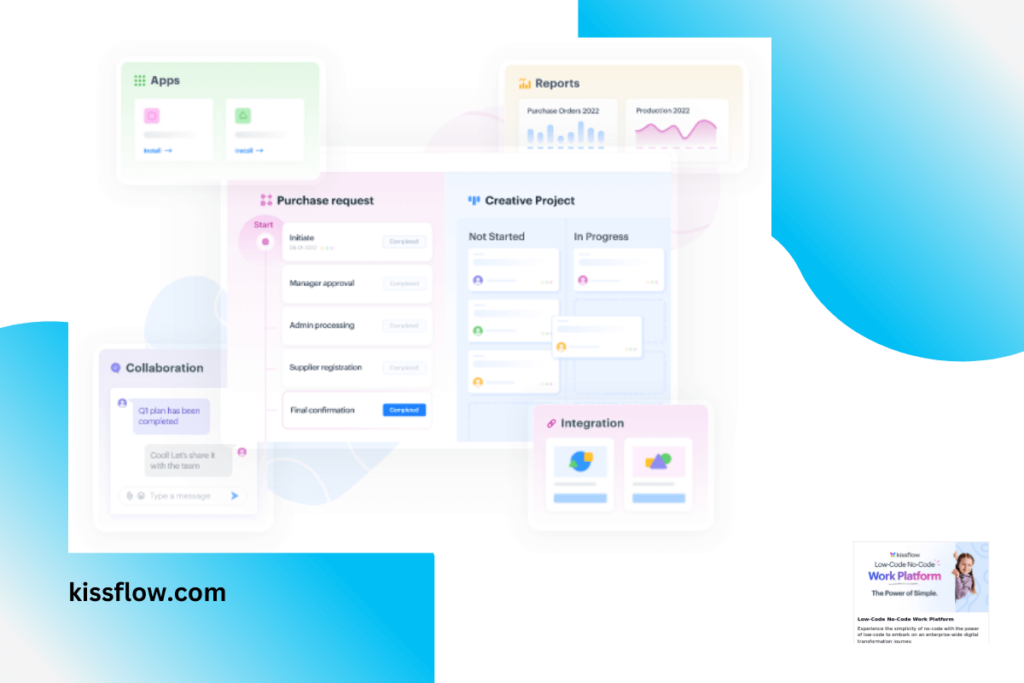
Pricing: Kissflow Project offers a free version of its software. The Basic plan is $5/user/month for 10 users minimum and the Advanced plan is $12/user/month for 10 users minimum. The Basic plan is Kissflow Project’s most popular plan.
Kissflow Project offers extensive integrations and automated data collection. It’s great for teams with heavy paperwork needing approval from many people. This solution includes a large number of important features that are sure to make your life easier. Some key features include advanced project collaboration and analytics tools like reports and pivot. Over 10,000 people in at least 160 different countries use Kissflow Project’s project portfolio management software.
| Pros | Cons |
| Simple automation of workflow process | Data exporting could be complicated at times |
| Great and affordable pricing structure | No autoresponders |
| Excellent customer support | Process modeler limitations |
| Extensive APIs available | Some tools could use improvement |
| Great employee on-boarding and off-boarding | – |
| GSuite integration | – |
| Wide range of useful tools | – |
5. Runn – Best for growing software teams
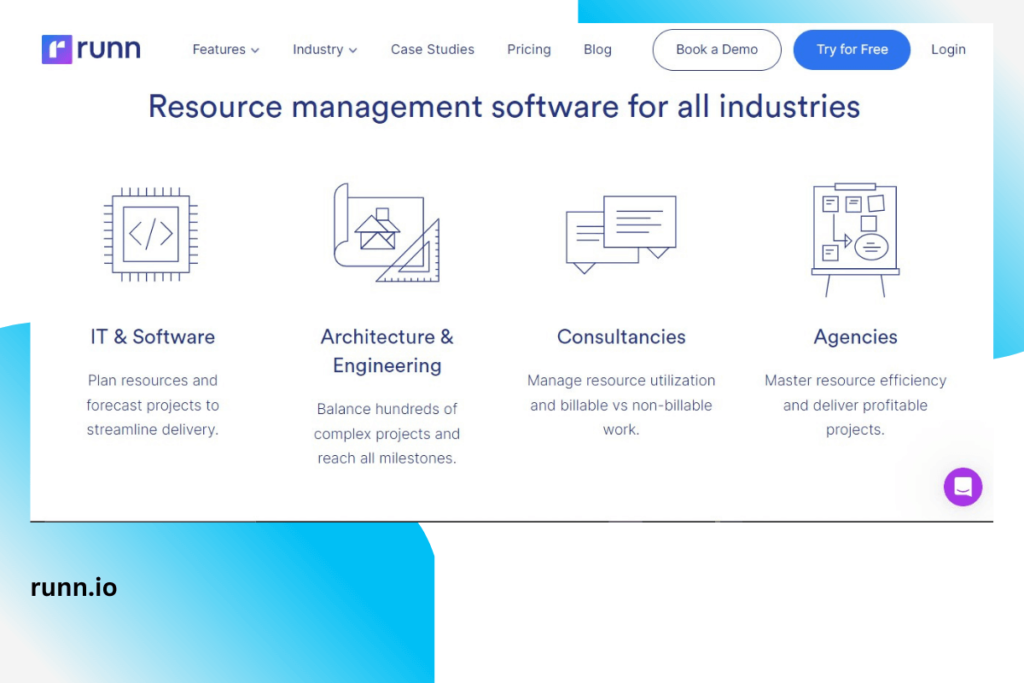
Pricing: You can try Runn for free for 14 days or book a demo via their website. Runn is available for free for startups for 5 people managed. The Pro plan is $10/person managed/month. For enterprise pricing, please contact Runn.
Runn is an amazing solution designed to help manage resources more efficiently. Runn makes scheduling, tracking projects, and viewing forecasts easier. Some key features include resource planning, project tracking, and comprehensive reports and forecasts. Runn integrates with WorkflowMax, among others, but your IT team can also create new integrations with Runn’s API.
| Pros | Cons |
| Resource and capacity planning tools | Integration takes time |
| Financial forecasting tools | More features could be added |
| Quick, easy scheduling tools | – |
| Excellent reporting tools | – |
6. Portfoleon – Best for growing companies
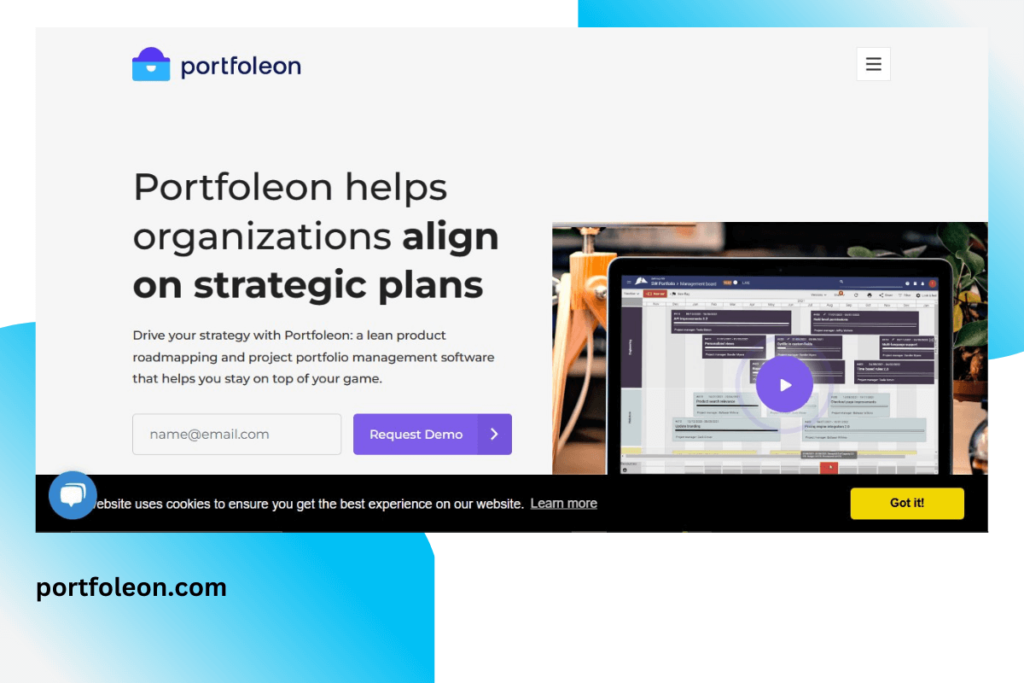
Pricing: Please visit Portfoleon’s website to request a demo. Portfoleon offers a 14-day free trial and you can purchase it for $19/user/month.
Portfoleon is a great solution that is best geared toward growing companies. The initial setup is quick and easy. Porfoleon offers all the tools needed for project portfolio management, such as interactive development resources and timeline boards. These boards are also highly customizable. With Portfoleon, you can account for and plan for all your resources by using their tools to visualize your projects. A great thing about Portfoleon is its visibility.
| Pros | Cons |
|---|---|
| Great tools for sharing project planning | More features could be added |
| Excellent resource management tools | Some changes could be made to improve ease of use |
| Highly flexible tool | Could be difficult to export data at times |
| Visually pleasing project overviews | – |
| Easy to edit in spreadsheet and roadmap views | – |
| Single sign-on | – |
7. Changepoint – Best for analytics
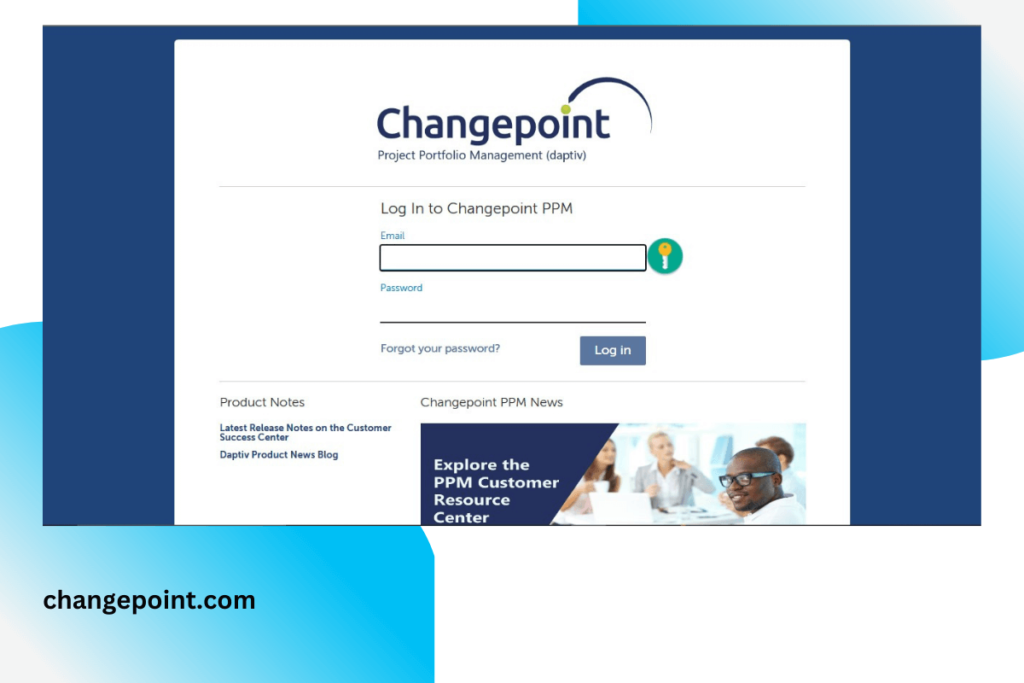
Pricing: You can try Planview’s Changepoint project portfolio management software for free for 30 days. Please visit Plainview’s website to inquire about pricing.
Changepoint will help you gain more insight into your most important business operations. Changepoint is known for its AI-powered reporting and analytics tools. Some key features include adaptable dashboards, task management, workflow, and advanced planning tools. Changepoint is a very flexible tool that can be used on the web or cloud, and it integrates with many other tools like Google and Dropbox, among others.
| Pros | Cons |
|---|---|
| Scalable across different projects | Clunky user interface |
| Excellent reporting and analytics tools | No mobile app |
| Solid project management functionality | Search functionality could be improved |
| Great training and support teams | – |
| Versioning capability | – |
| Flexible | – |
| Integrates with many tools like Jira, Google, and Dropbox | – |
8. Oracle Primavera – Best for engineering and construction industries
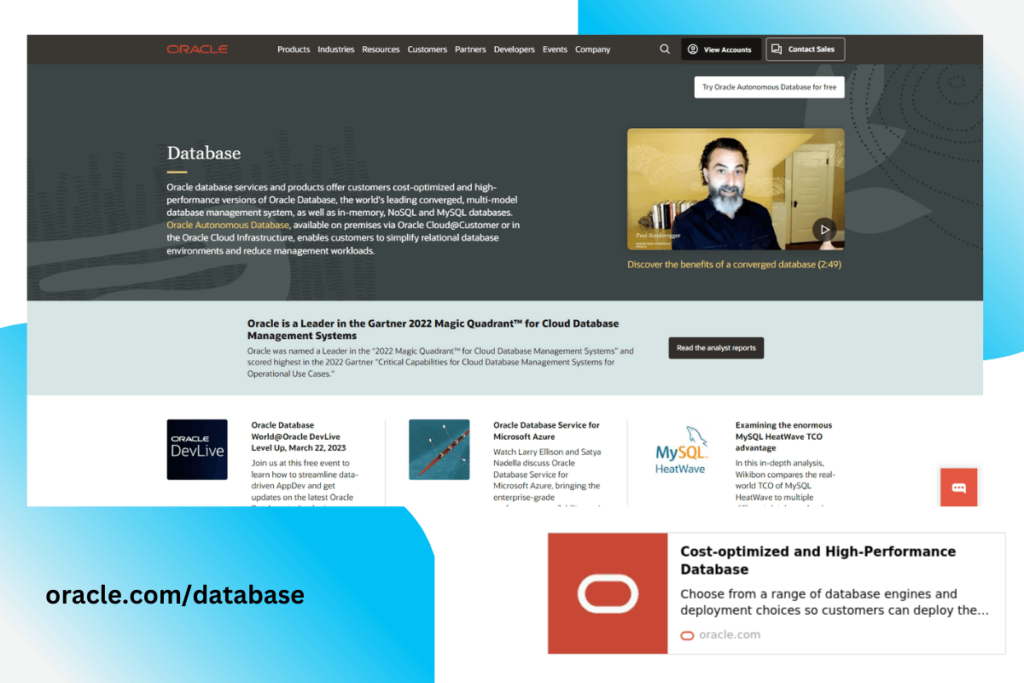
Pricing: For a free demo and to inquire about pricing, please visit Oracle’s website.
Oracle Primavera has been helping businesses handle small and large projects for over 30 years. While this tool is robust and requires some level of training to use, it includes a wide array of amazing features such as progress tracking, comparison tools, financial administration, workflow configuration, and configurable reporting and analytics. Oracle Primavera integrates with other Oracle products like E-Business Suite, PeopleSoft Projects, and more. This solution comes with two mobile apps available for Android and iOS, so users can share updates from the field.
| Pros | Cons |
|---|---|
| Detailed reports | Expensive |
| Flexible | Steep learning curve |
| Multi-user system | Not geared toward smaller, simpler projects |
| Real-time reporting | Customer service could be improved |
| Customizable dashboard | – |
| Can be used on multiple devices | – |
| Integrates with Oracle products and third-party products | – |
9. Workfront – Best for service teams
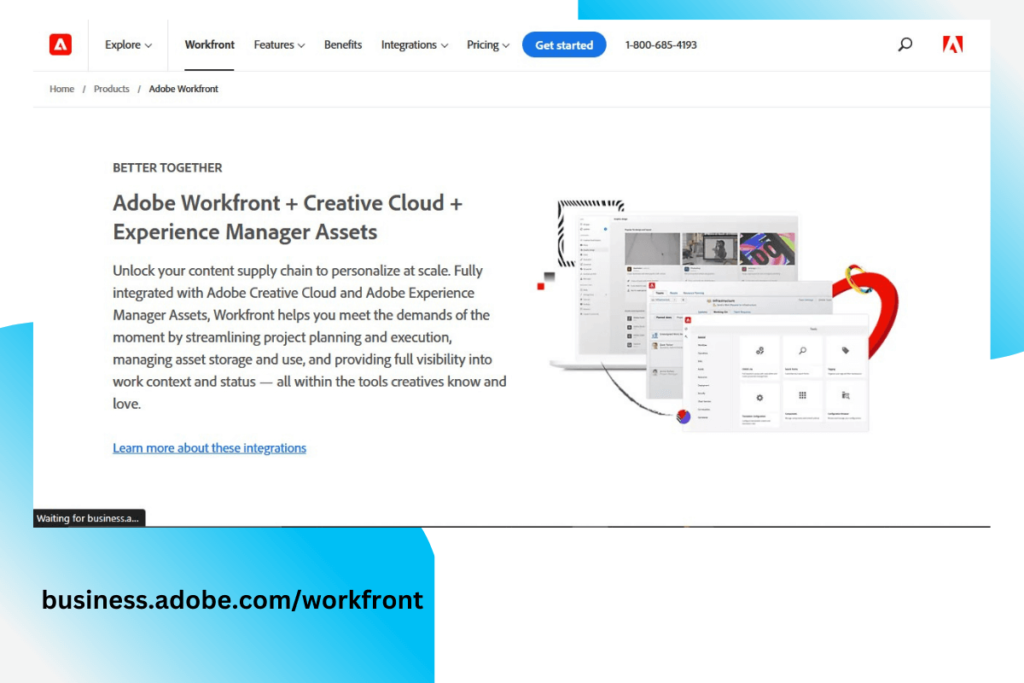
Pricing: Adobe Workfront offers three unique plans: enterprise, business, and pro. To request pricing information, please visit their website.
Workfront is designed to help users address work management on a more general level. With Workfront, you’ll be able to manage tasks, manage resources and budgets, review work, and track progress. This solution is geared toward organizations with large workloads. Workfront Fusion is an integration platform that complements Workfront’s project portfolio management software by letting users sync information from over 150 apps like DropBox and Google Analytics.
| Pros | Cons |
| Enterprise-level work and project management | Long setup time |
| Large set of useful features | Chat app or timer not included |
| Supports various permissions levels | – |
| Open API | – |
10. LiquidPlanner – Best for ease of use
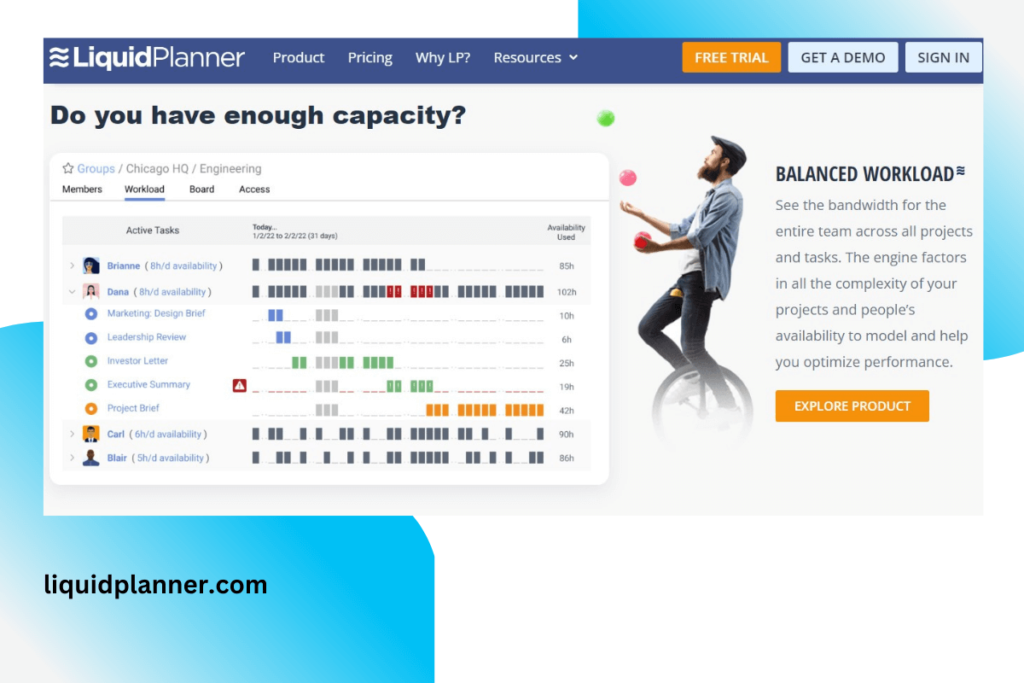
Pricing: Liquid Planner is available for free if you sign up. Their Essential plan is $15/month, the Professional Plan is $25/month and their Ultimate Plan is $35/month.
LiquidPlanner has highly customizable dashboards that make visualizing data easy. Going beyond just project portfolio management needs, LiquidPlanner helps users track resources like staff and equipment. Other key features include comprehensive analytics tools that are sure to help you and your organization analyze performance and baseline trends.
| Pros | Cons |
| Automated scheduling | Long setup time |
| Projects best and worst-case scenarios | No milestones attachments |
| Excellent management and insight tools | – |
| Great time tracking tools | – |
